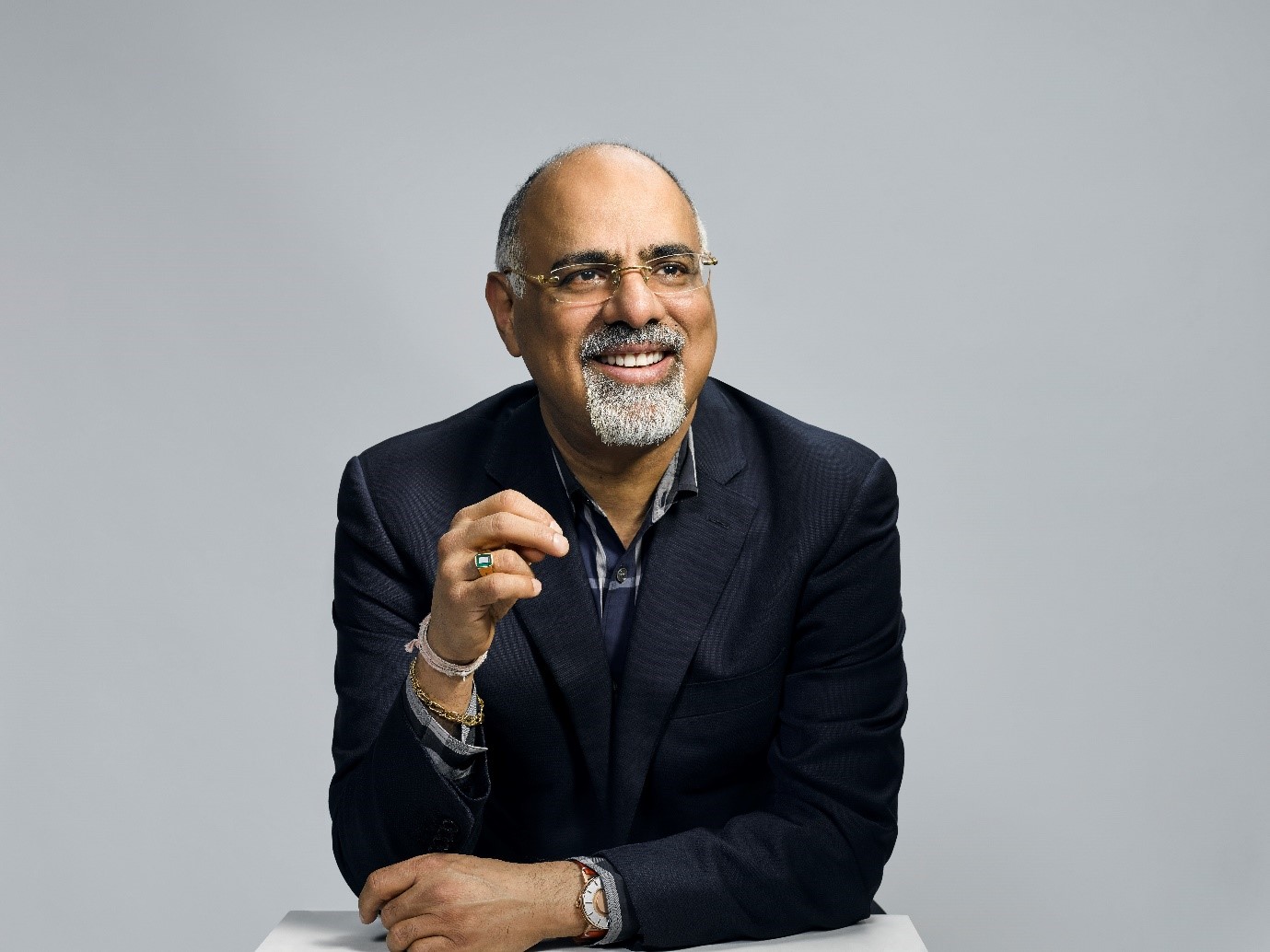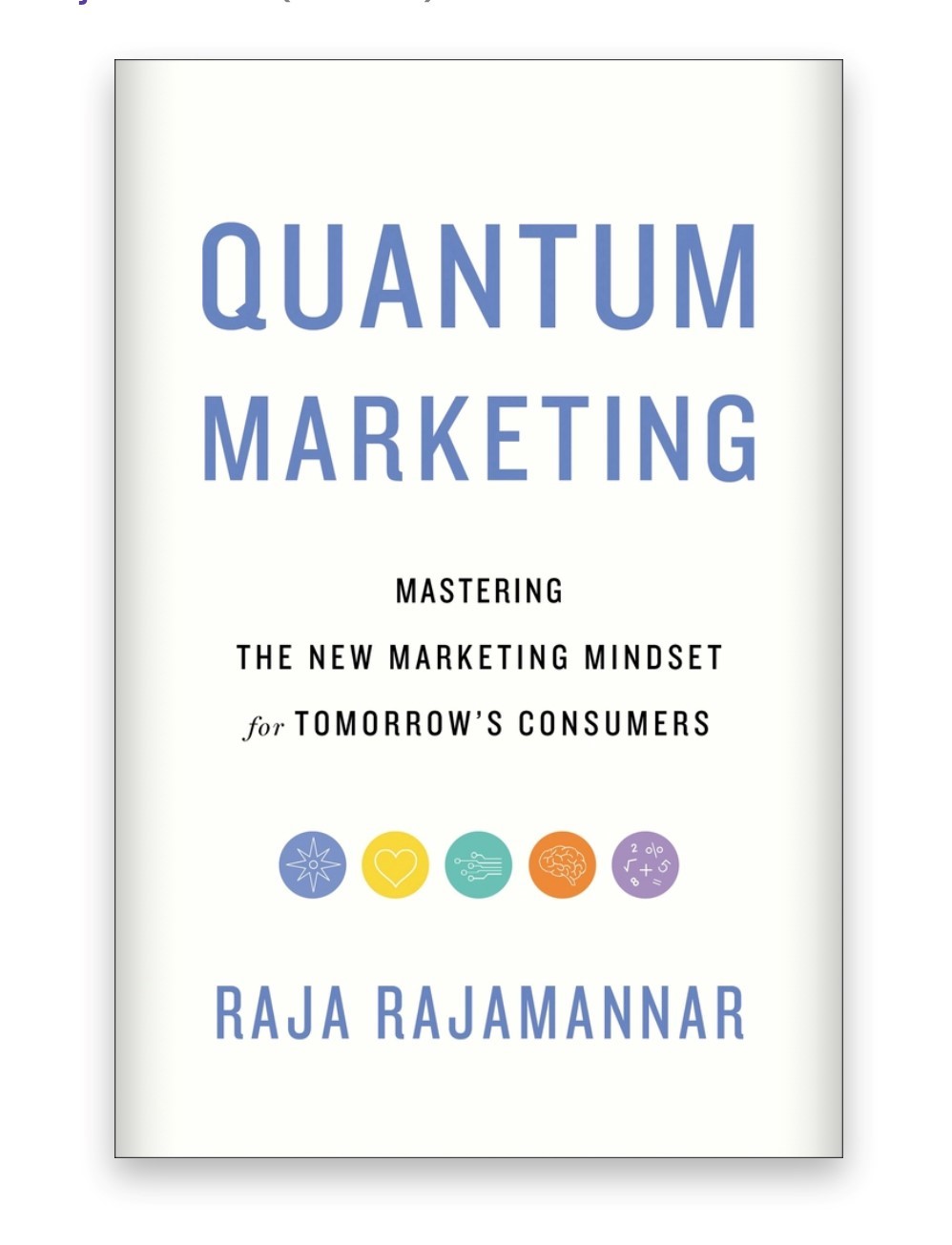Raja Rajamannar, Chief Marketing Officer of Mastercard and author of the new book ‘Quantum Marketing’, speaks to WARC’s Anna Hamill about how technology can drive marketing forward, purpose and trust as key brand differentiators, and why risk management is a crucial marketing function.
The last time we spoke was when COVID-19 had just blown up. Everyone was in crisis mode. What's the biggest lesson you've learned as a marketing leader these past 12 months?
The biggest lesson is that marketing has to include risk management as an integral part of its remit. I was very fortunate that, three years back, I was doing the scenario planning for the next five years. We – as a marketing function – have so many risks that we have to manage. There could be economic risk, financial risk, reputational risk, security risk, or a privacy risk. Should we not look at all the risks through one lens? So, I started up a risk management function within marketing [at Mastercard]. The whole idea is to identify the risks, what the mitigation plans should be and if the risk actually happens, what the contingency plans will be.
Thank goodness we did that. While we did not anticipate COVID per-se, we predicted a whole bunch of things that happened during COVID – whether it’s an economic crisis, or a social crisis. Therefore, when COVID happened, we could immediately cut over to our crisis management situation without missing a beat. That's the single biggest learning.

Raja Rajamannar, author of Quantum Marketing and CMO at Mastercard.
What would your advice be about setting something like a risk management function up within a brand?
My first piece of advice would be to find a finance person or team, depending on the size of the organisation, to be embedded inside marketing. Along the same lines, you need to have somebody who understands risk management to either provide inputs to marketing or even be a part of marketing.
You have to approach it very, very methodically. Have your training programmes and wargames. You have to really go through scenario planning and act it out literally. Prepare your people so when the crisis happens, you're ready to take on the challenge. COVID-19 is not the last of the crises – there are so many crises that can happen. This is something which can completely decimate marketers if they're not prepared.
Which trends have you seen in the last 12 months that you think are here to stay?
This pandemic has done certain things which are quite irreversible. One of those is, for example, that remoteness has become a part of our life: remote learning, remote working, remote shopping, etc. These are going to be an integral part of our lives into the future. So, as marketers, we need to adjust our models to reflect this new reality into the future, where ‘remote’ is a significant part of the entire life experience for customers or consumers. Whether you're B2B or B2C, this is true.
E-commerce is really growing like crazy, in terms of people who have never used e-commerce using it for the first time. What do you do as a marketer to play an active role in those kinds of environments, and take advantage of those dynamics for your brand and for your company?
In your book, Quantum Marketing, you assert that marketing will evolve from an era of ‘winning and keeping consumers’ to one of ‘winning every interaction’. How does that work in practice?
My whole hypothesis is [marketers] are spending hundreds of billions of dollars every year on loyalty programmes. I think that is a fallacy. We need to change that paradigm, because people are not hardwired for loyalty. For example: I have got a Costco card, I have Amazon Prime, and I have a Kroger's card. I'm purchasing the same things from all three all the time. At that particular time, I just use whichever card is in front of me. [Likewise,] I have got loyalty programmes with every airline in the United States.
Basically, loyalty has almost evolved to become a part of the pricing equation for consumers rather than anything else. We need to rethink loyalty. Loyalty is not about winning and keeping your customers once or once and for all. The approach should be one of ‘preference management’. Every time a consumer makes a choice, or is making a choice, you want to influence their choice in favour of your brand at that point in time. That's what you need to do: you have to win every transaction, every interaction, and you have to influence their preference.

How do you balance risk management with also creating an innovative and a creative culture which moves marketing forward? What's your experience been?
I think it has been a fantastic co-existence of both mindsets. Marketers naturally don't think in terms of controls, processes, systems and stuff like that, so risk management starts [doing] those things. It actually enables creativity to thrive and flourish. What it does is very liberating in many ways. If there is any lurking suspicion at the back of your mind – am I doing the right thing or not? – go through it with the risk management function. You have to be very careful that you don't burden all your marketing people with the risk management responsibility, but have a risk management person or department under your umbrella. As a CMO, you have responsibility: on the one hand, you have to drive creativity; on the other hand, you have to keep the company safe. These are really two sides of the same coin.
One of the core themes in Quantum Marketing is the potential of augmented reality (AR) and the Internet of Things. How can marketers integrate technology without losing sight of the long-term? How do you get the balance right?
Unfortunately, many marketers have not. They have come from the creative side of the house. They are creative, they're intuitive, they're innovative, and they have got great judgement. [But] technology and data are typically not the forte of classical marketers… nobody is looking at what I call ‘the fifth paradigm’ we are entering right now: the slew of technologies coming that will lead to an unprecedented level of disruption in the world of marketing. AR is evolving practically every week with a new application or advancement, same with VR. There’s autonomous cars, wearables, smart speakers, the Internet of Things, drone deliveries, etc.
The first thing marketers have to do is to understand those technologies in plain language, in my book I tried to do exactly that. Marketers should educate themselves at least to the extent where they can understand what is being said, and they are able to tell the difference between the wheat and the chaff. The first part is education, and then marketers have to rethink their team composition because they need to have tech-savvy and data-savvy marketers.
Number three: they have to establish partnerships, internally and externally. You have to be best buddies with your chief information officer, with your chief legal officer, and with HR. On external partnerships, you have to [think], does my agency have all the skills and capabilities that are required for this future? Either put pressure on the agency to upgrade its skills, or look for supplementary agencies. You need to have those kinds of partnerships to test out new concepts and rapid test with a pass or fail. If you pass, how do you scale it?
I'm making a very bold and provocative statement: the way we have been doing marketing until now will not work tomorrow. What got us here won't get us there. So tomorrow, in the fifth paradigm, you need to imagine marketing completely. That new approach to marketing is what I'm calling ‘quantum marketing’.
How important will trust and purpose be in the future as brand differentiators?
Many people [believe] purpose is all fluffy, or that it's meant for the annual reports. But in a world where there is an increasing amount of distrust, brands which can earn the trust of consumers are going to stand out.
Brands earn their trust when they have a true purpose. Brands have to bring it to life in ways that consumers can see what the brand is doing. It’s not about making more profits, but about pursuing social good in a very important way. That's going to be a huge differentiator. In fact, I have dedicated a whole chapter to purpose, and I have dedicated a whole chapter on integrity and ethics. These things – purpose, integrity and ethics – are the ones which are actually going to drive trust building in brands. Trust is going to be the single biggest currency brands can have to win in the marketplace.

